Celebrating Women's History Month
Published March 9, 2021
March is Women’s History Month! To celebrate, learn about some of the women working in EPA’s Office of Research and Development to protect human health and the environment.
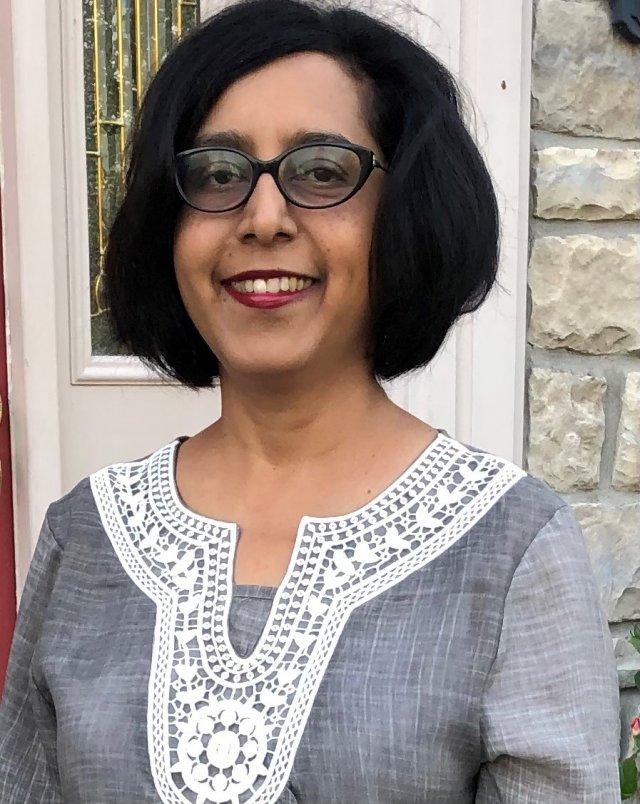
Sandhya Parshionikar, Ph.D., Associate Division Director, Water Infrastructure Division, Center for Environmental Solutions and Emergency Response

How does your work at EPA help protect public health and the environment?
The Water Infrastructure Division in EPA’s Center for Environmental Solutions and Emergency Response is home to expert scientists and engineers in the area of drinking water quality and integrated water resource management. As the Division’s Associate Director, I ensure that these scientists and engineers are given the resources and support to perform their research and technical support activities to solve environmental and public health challenges in communities across America. I strongly believe that no matter what the challenge, the great work of the division must go on and I strive to achieve that through effective process management. I am very proud of our staff who are such great public servants, always ready to help. Their efforts help improve drinking water and source water quality for all Americans.
What was your most challenging experience in school or work and how did you overcome it?
My doctorate degree is in microbiology. While pursuing laboratory research, I realized that microbes have a mind of their own! They have an uncanny skill of defying your expectations when you eagerly analyze results of your experiments. Tiding over experimental setbacks required perseverance, hard work and passion. Thanks to my advisor who frequently challenged my way of thinking, I am a better critical thinker now.
Do you have any advice for young people interested in careers like yours?
There cannot be a better time to consider a career in environmental sciences! With so many environmental problems awaiting solutions from smart and passionate people, my advice for young people would be to follow your heart. Figure out which area of environmental science interests you, invest in an education in the field, and then seek a career in it. If you are unable to figure out what interests you the most, try out several things with an open mind. It is also helpful to have a mentor to show you a difference perspective. The sky is the limit!
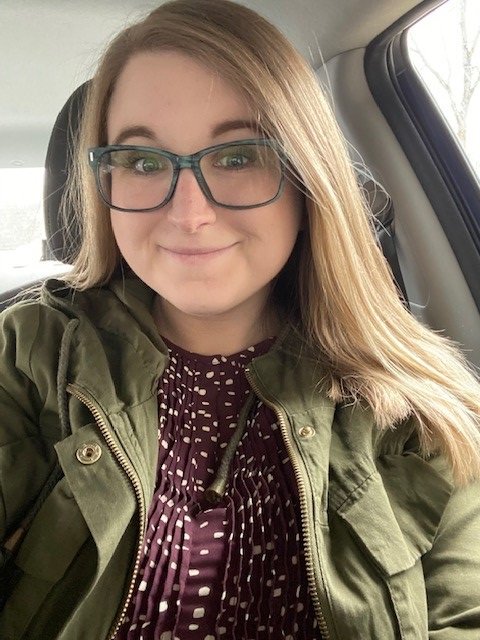
Sarah Goodrich, Physical Scientist

How does your work at EPA help protect public health and the environment?
My work at the EPA coincides with my Masters thesis project. I am hoping to determine where the greatest risk of Microcystis harmful algal blooms (HABs) is in the future due to surface water warming by using geographic and aquatic toxicology techniques. Microcystis blooms can harm aquatic life and humans, and I’m passionate about both!
What was your most challenging experience in school or work and how did you overcome it?
In my undergraduate career, I applied to six different REU (Research Experience for Undergraduates) programs and got rejected from every single one. It was a blow to my ego, and I am very thankful for many professors who reminded me that even the greatest scientists get rejected, and it’s all part of the profession.
Do you have any advice for young people interested in careers like yours?
I would want to stress that it’s possible to work in your field while still being in school. I was hired at EPA before I finished my undergraduate degree, and I’m still here while I’m in the middle of my masters. I think being able to manage time well is a key part to success while working and being in any type of schooling.
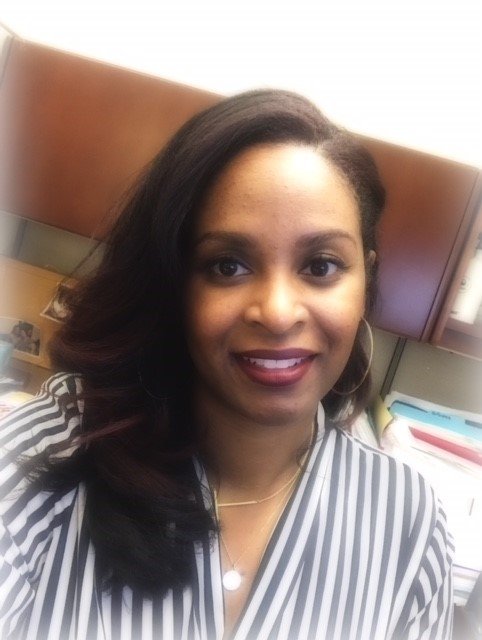
Tia Groves, Management and Program Analyst

How does your work at EPA help protect public health and the environment?
My current position is the Program Operations Team Lead in the Office of Research and Development’s Immediate Office of the Assistant Administrator (IOAA). In this position I am lucky enough to work with a great team to perform analytical and evaluative work related to the development and execution of office-wide program activities. Overall, our team works to ensure effective management of IOAA resources and develop procedures and guidelines to enhance the administration of IOAA operational and administrative activities.
What was your most challenging experience in school or work and how did you overcome it?
One of the most challenging experiences in school was learning to effectively work in a team. The introvert in me would prefer to work independently.I quickly learned that this approach is not always the best approach. I realized that working with a team is not only valuable as everyone brings different perspectives, experiences and knowledge to the table, but it can also be fun! Now I appreciate team efforts and really enjoy it.
Do you have any advice for young people interested in careers like yours?
Consider finding a mentor or a professional coach. I was lucky enough to have a mentor very early in my career. My mentor always made herself available to me, provided advice and even served as a sounding board when needed. She was very instrumental in my career path and taught me great deal throughout my 20 year federal career. I am currently working with a professional coach which I’ve also found to be a valuable resource.
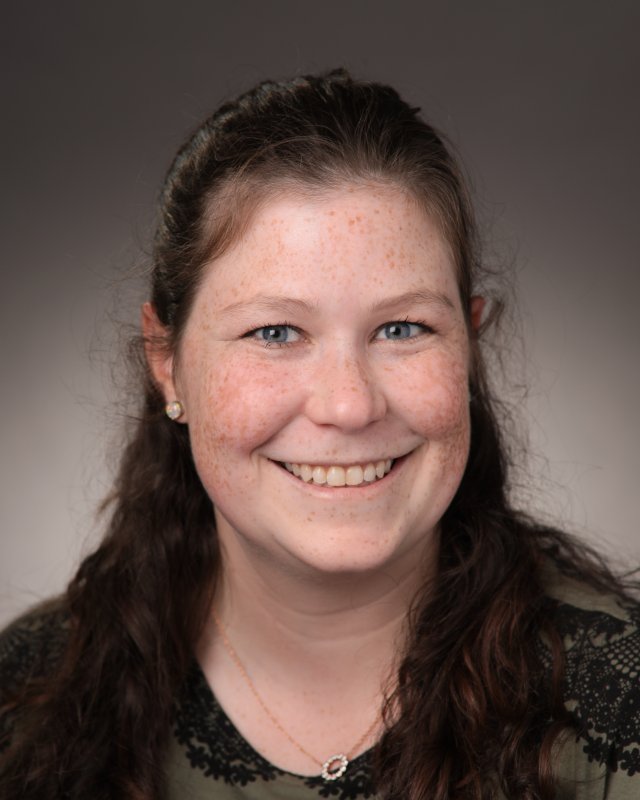
Michelle Robillard, M.S., Biological Science Lab Technician

How does your work at EPA help protect public health and the environment?
I’m currently working for EPA as a lab technician in the Center for Public Health and Environmental Assessment (CPHEA) in the Exposures Indicator Branch (EIB). I started at the EPA less than a year ago and have learned so much already about how our Agency works and the good it can bring to the environment and surrounding communities. My work focuses on human exposure to different toxins in the environment. We look at different human samples from a certain area or from people who have traveled or frequented an area to determine which toxins or microorganism are present. I still have lots to learn about the branch and my work, but my coworkers and mentors are there every step to help me on my EPA journey.
What was your most challenging experience in school or work and how did you overcome it?
One of the most challenging experiences I have had was my first lab position during my undergraduate career. I was working in a cancer research lab that didn’t have a lot of resources, and I was tasked with running the lab efficiently. I was still new to lab work and had to figure out how to best run and maintain the day to day activities of the lab. This included conducting experiments, lab upkeep, maintenance, and the purchasing of supplies. However, I wouldn’t change that experience for anything. I learned so much about how to run a lab efficiently and gained skills that have stuck with me throughout my career. I still use some of those skills in my work at EPA.
Do you have any advice for young people interested in careers like yours?
Don’t panic if your career goals change over time or even overnight. People may have expectations for you, but do not get discouraged if you don’t meet those expectations. I changed my career goal in the middle of my master’s program, and I do not regret it. Stick to what you love and what challenges you. Science, even environmental science, has so many different angles to look at and to research. Pick one that you are interested in and that pushes you.
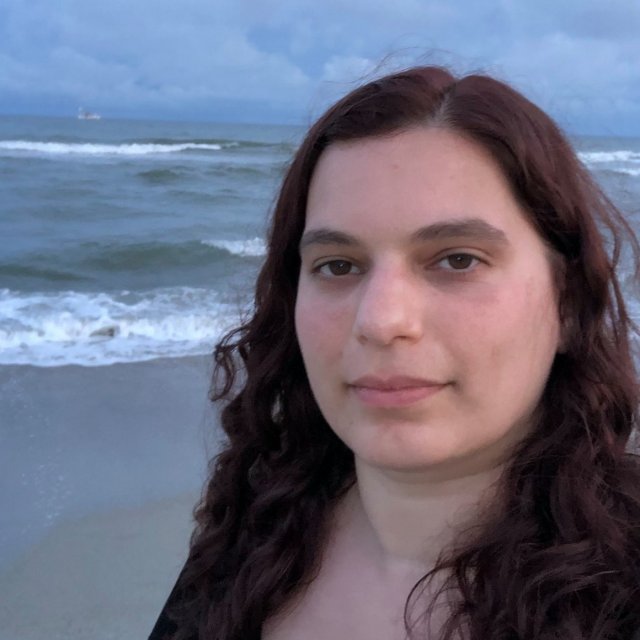
Kristen Rappazzo, Ph.D., Epidemiologist

How does your work at EPA help protect public health and the environment?
I’m an environmental epidemiologist, while I largely focus on air pollution, I’ve investigated the health effects of a number of environmental exposures. Epidemiology is often called the science of public health and working as an epidemiologist at the EPA lets me make direct connections between the research I do and the protection of public health. In general, my work adds to the body of knowledge on how environmental exposures affect human health, and what people are more or less vulnerable to those exposures. My air pollution research becomes part of the assessments that support the setting of National Ambient Air Quality Standards required by the Clean Air Act. I have also contributed directly to those assessments, among others, as well as authored a number of systematic reviews summarizing environmental epidemiology research. I know these are helpful because state health department folks have thanked me specifically for them!
What was your most challenging experience in school or work and how did you overcome it?
One of the major challenges was having to set my own schedule and deadlines, and then stay motivated to keep them. Going from the structure of a job or classes to being essentially on my own while working on a dissertation was a big shift. I figured out different ways to motivate myself, some were little rewards – write a paragraph get to read a fun book for 30 minutes, some was productive procrastination in between dissertation work – do the dishes, then work for an hour. One of the main things that helped me was to tell my advisor I needed her to be disappointed in me if I didn’t get her a piece by a date. She would laugh at me, then put on a serious face and say “Kristen, I NEED your methods section two weeks from today.” Even though I knew it wasn’t real it helped keep me on track. As I now mentor students, I offer them the same trick which they generally appreciate.
Do you have any advice for young people interested in careers like yours?
Research, research, research! Epidemiology is currently a popular topic, and there are many ways one can be involved in epidemiologic work. What aspect appeals the most? Do you want applied public health work, research based, or a combination? What degree do you really need (if any) to do the type of work you want (don’t do extra school just to get the letters!)? If there are people doing work you find exciting, reach out to them. Most people are happy to talk about their work with those who are interested, and if they aren’t that tells you something too.
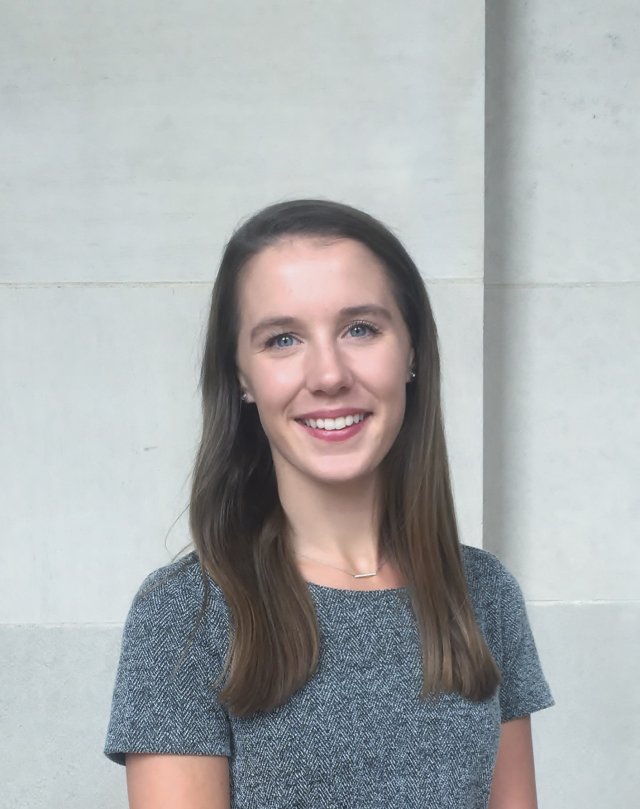
Deirdre Turner, Program Analyst, Office of Research and Development’s Regional Science Program

How does your work at EPA help protect public health and the environment?
My work in the Office of Research and Development’s (ORD) Regional Science Program helps to protect public health and the environment by creating networks and partnerships between regional and ORD scientists to address environmental issues and by facilitating research programs that promote the effective transfer of research results on high priority regional science issues. Research projects funded under the Regional Science Program tackle pressing regional environmental issues across the United States, projects have touched upon all aspects of environmental sciences from human health concerns to ecological effects of various pollutants. It is wonderful to be part of a program that advances EPA research and creates key partnerships between federal, state, local and tribal environmental groups which are vital in tackling the most pressing environmental issues.
What was your most challenging experience in school or work and how did you overcome it?
One of my most challenging experiences was determining what field of study I wanted to be in. Beginning college, I had the (incorrect) idea that success was based on a linear career. I felt significantly behind because I didn’t have that I’ve known what I wanted to be since I was five years old feeling about one specific career. To combat this, I took the time to take courses in fields that I had interest in. By doing this I found out which fields I didn’t like, spurred new interests in fields I was unaware of, and narrowed down the options as I went along. It was great to have the time to explore different disciplines, however, it left me behind in credits to graduate. This led to another challenge, a jammed pack – 21+ credits per semester - senior year. It was stressful at the time but looking back now I learned a lot about how discipline, time management, and prioritization (and a good cup of coffee) can combat stress and big workloads. The organizational, time management, prioritization skills that I honed then are now integral to my approach to work and career.
Do you have any advice for young people interested in careers like yours?
As early career myself I would say, don’t hesitate to reach out for advice. I have yet to run into a more experienced colleague/teacher/mentor who did not want to share their wisdom and experiences with a young scientist. Learn about the paths that your teachers/mentors haven taken within their career, everyone started somewhere and hearing these experiences is often a good reminder that you don’t have to have it all figured out on day one or that you have to have a perfectly straight path through your career. Trust in your passions, your capabilities, and take initiative. Research topics, positions, and organizations that you are interested in, ask for informational interviews, take advantage of trainings and continued learning offered throughout your education and employment, and work to stay connected with colleagues, mentors, and teachers even after you have moved on – your network is key!
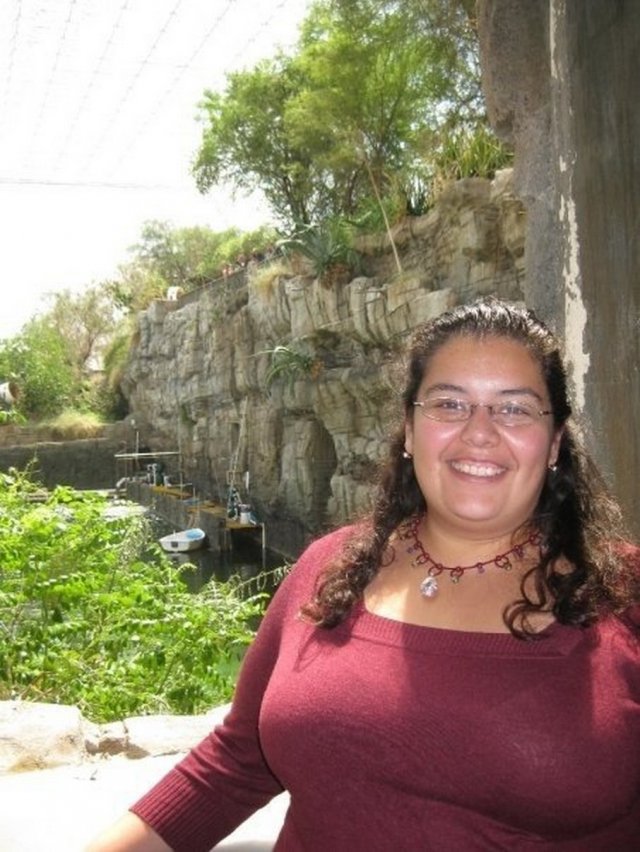
Andrea Clements, Ph.D., Air Quality Scientist

How does your work at EPA help protect public health and the environment?
I work on evaluating air sensor technologies. These are new technologies designed to be smaller, more portable, and easier to use than more traditional air monitoring equipment. Part of my work involves testing these new devices to see how well they work compared to the more traditional air monitoring equipment and developing methods to clean and correct the sensor data so that the data may be more comparable to the traditional air monitoring networks in place across the US today. I also work to determine for what purposes they may be useful, explore some applications to answer environmental questions, and create resources to help others successfully use this new technology. It’s exciting that air sensors make it possible to measure air quality in more places and by more people, including individuals and community scientists. This new community level/individual level air quality data can help individuals make decisions to better protect their own health. For instance, one can use the data to exercise when pollution is lowest, learn what causes pollution in our homes, advocate for change in their communities, and add to our understanding of how pollution is changing over time.
What was your most challenging experience in school or work and how did you overcome it?
My path through graduate school was non-linear and took me a lot longer than I had hoped. I started my graduate degree after a couple of years working in my field. Going back to school after a short break away was a challenge and required a little time re-learning how to study. But that time between undergraduate and graduate school taught me so much and was an invaluable experience that I wouldn’t trade. The program I choose initially wasn’t a great fit for me and left me with a lot of self-doubt. I had to believe in my goal, persevere, and follow an uncertain path when it became clear I needed to leave. But I made a change and started another program to finish my Ph.D. That required me to take additional classes and to take a bit of extra time to complete the process. I needed to work on overcoming that self-doubt instead focusing on my unique skills. For others, just remember that your path doesn’t have to be straight, you might hit bumps or roadblocks but it’s how you overcome them that is most important, and you have to be believe in your goals and dreams to make them come true.
Do you have any advice for young people interested in careers like yours?
I suggest trying to schedule some informational interviews to learn more about the career path, key skills needed, and day-to-day responsibilities of the job. I also suggest trying to get some hands-on experience, even if it’s just a part-time volunteer opportunity, as soon as possible. This will not only help you determine if the career is really as attractive as it seems, but the experience will be invaluable. For those specifically interested in my work, I’d recommend honing skills in public speaking, communications, AND science. Science becomes much more useful when you can communicate what it means with a diverse audience. Lastly, spend some time learning coding and data science; I think those skills will only get more important with time.
